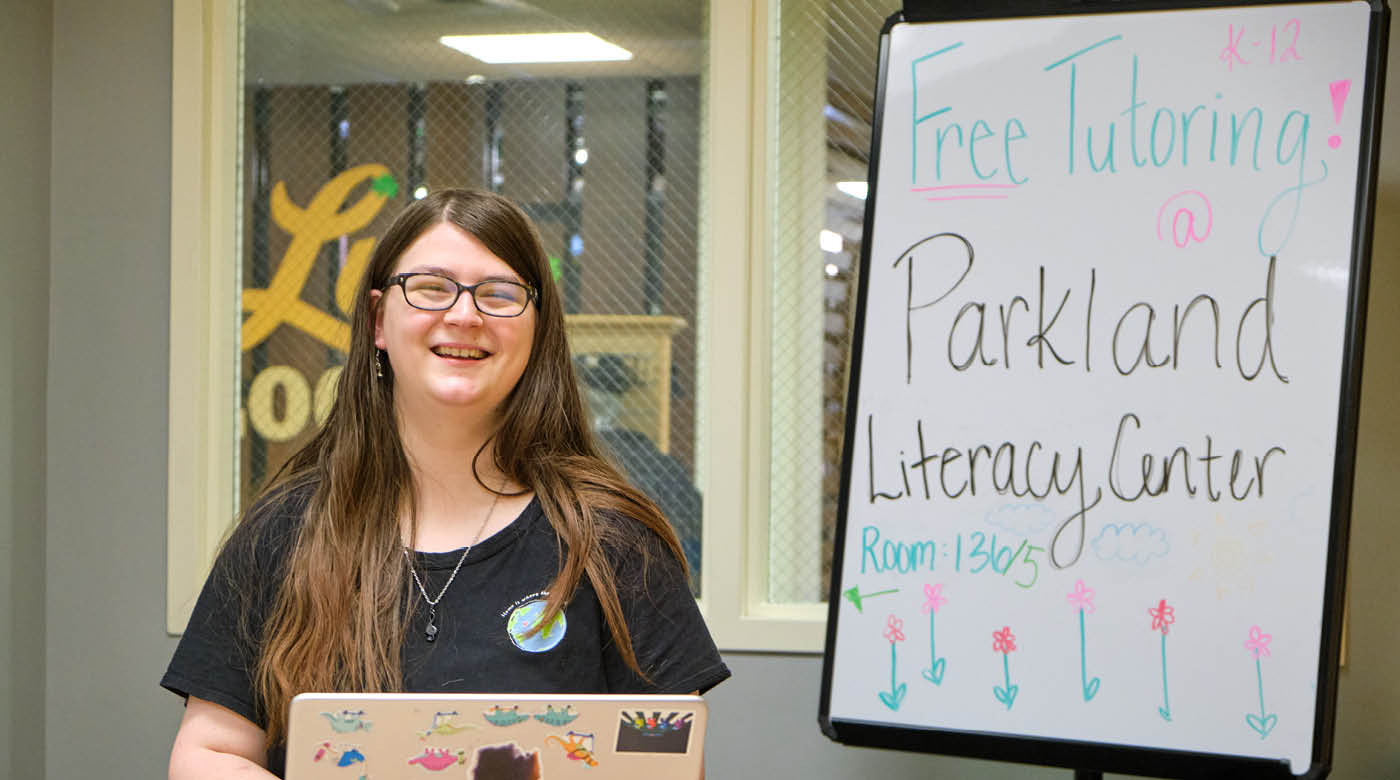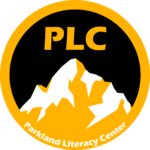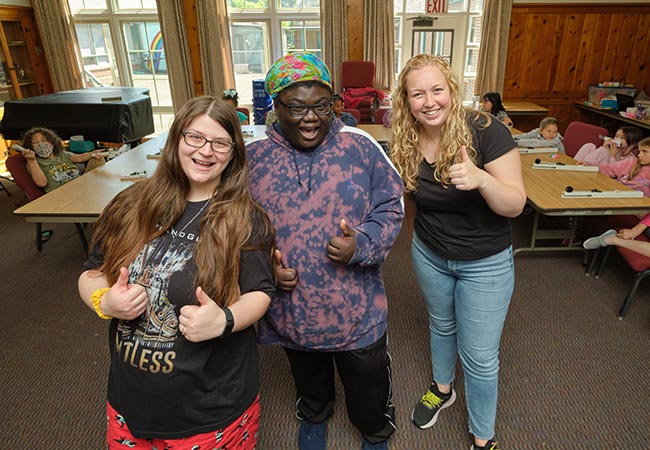PLU’s Parkland Literacy Center supports local k-12 students, receives new grant

Image: An education major with an emphasis in special education, Kaila Harris ’24 is a tutor at the Parkland Literacy Center.
By Lora Shinn
PLU Marketing & Communications Guest Writer
For the past four years Pacific Lutheran University student workers and volunteers have made the Parkland Literacy Center a beacon of community and learning support. Operated by PLU and located in the Anderson University Center, the center provides free one-on-one and small group tutoring for K-12 students in the Franklin Pierce and Bethel School Districts.
The success of the center was recently recognized by local leaders. The Pierce County Expanded Learning Opportunity Fund, a partnership between Pierce County and the Foundation for Tacoma Students, awarded a $49,250 grant to PLU to support the Parkland Literacy Center, roughly quintupling the organization’s modest budget.
“It’s a vote of confidence that will allow us to support more young people in our community,” says Bridget Yaden, PLC co-director and PLU professor of Hispanic and Latino studies. “It will make an immediate impact.”
When it opened in 2019, PLC offered tutoring for reading, writing, and language acquisition. Center leaders quickly recognized that more was needed. “We challenge the notion that literacy is just reading and writing,” says Scott Rogers, PLC co-director and PLU associate professor of English. As a result, the center also offers help with math and STEM literacy, financial literacy and more.
PLC offers help for those learning Spanish and support for English language learners across backgrounds and experiences—with free evening English language classes for adults at various skill levels.
The center’s free tutoring also includes test prep, long a domain of for-profit businesses requiring parental discretionary funds. For example, tutors help high-school students prepare for the SAT, AP tests, and the STAMP test, which earns college-level language credits.
“We’re helping reduce the stigma around tutoring and coming in for academic support,” Yaden says. “Young students realize you don’t have to be a struggling student because everyone can benefit from tutoring.”
Students can access the center’s resources, including books, textbooks, notebooks, pencils, bookmarks, and computers with wifi and printing services. And, of course, snacks—a critical element of any after-school program. Tutoring occurs after school in the Anderson University Center on PLU’s campus, and the center plans to expand off-site tutoring in local schools and Pierce County Library branches.
PLU student tutors represent a wide range of majors beyond the expected education pathway, including business, computer science, math, social work, and nursing. PLC also offers a unique opportunity to demystify the university experience, especially for potential future first-generation students. PLC’s Big Buddies program brings PLU students to James Sales Elementary for mentoring, homework help, games, crafts, and other activities twice a week after school. “We meet students where they are,” Yaden says.
“PLU students don’t always get a lot of opportunities to engage with the Parkland/Spanaway community, so PLC is an important connection between campus and community,” Rogers says. “Our students learn about the wonderful, dynamic lives children and teens live. It’s a way of giving back, doing something of service that’s valuable.”
The new grant will allow PLC to hire more student tutors and provide far more tutoring resources. In the past, PLC relied heavily on volunteers and a handful of paid student directors. The program will now be able to pay tutors and retain them year-round, which in turn will provide service consistency to the youth the center supports. This year around 25 tutor roles will be paid, between the grant and the typical payroll budget funded by PLU and donations.
In recent interviews for tutor roles, Rogers noted that many students felt enthusiastic about how tutoring could build and strengthen skills around empathy. “When discussing future careers, students understand they’ll work with many different people from different places and want to get better at that,” he says. “Tutoring offers the opportunity to work with students with different experiences and backgrounds.”
“The mission of PLC and the service of our student tutors demonstrates PLU’s mission of care and how our students are living it out,” says Yaden.




